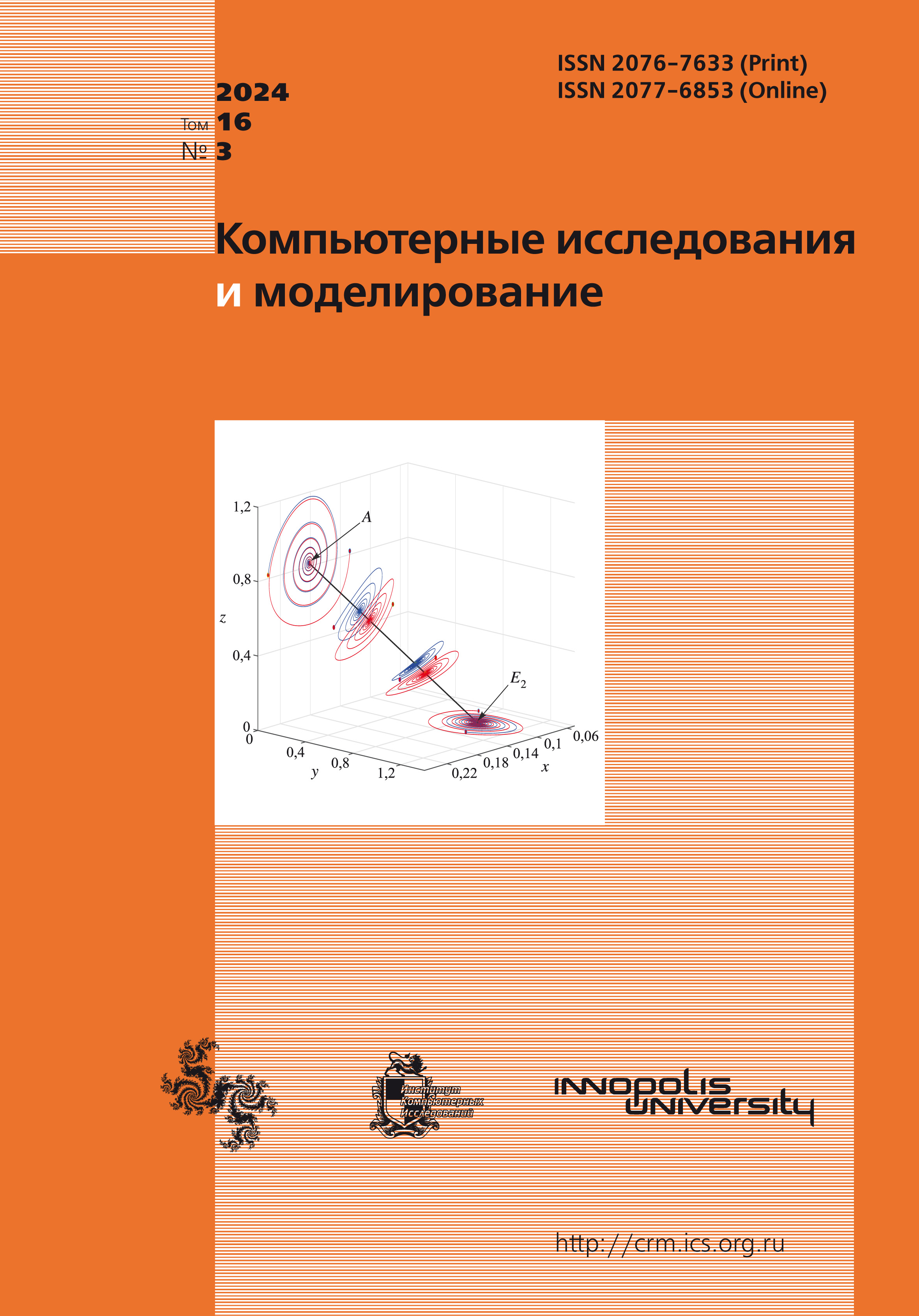All issues
- 2025 Vol. 17
- 2024 Vol. 16
- 2023 Vol. 15
- 2022 Vol. 14
- 2021 Vol. 13
- 2020 Vol. 12
- 2019 Vol. 11
- 2018 Vol. 10
- 2017 Vol. 9
- 2016 Vol. 8
- 2015 Vol. 7
- 2014 Vol. 6
- 2013 Vol. 5
- 2012 Vol. 4
- 2011 Vol. 3
- 2010 Vol. 2
- 2009 Vol. 1
Tasks and algorithms for optimal clustering of multidimensional objects by a variety of heterogeneous indicators and their applications in medicine
 pdf (258K)
pdf (258K)
The work is devoted to the description of the author’s formal statements of the clustering problem for a given number of clusters, algorithms for their solution, as well as the results of using this toolkit in medicine.
The solution of the formulated problems by exact algorithms of implementations of even relatively low dimensions before proving optimality is impossible in a finite time due to their belonging to the NP class.
In this regard, we have proposed a hybrid algorithm that combines the advantages of precise methods based on clustering in paired distances at the initial stage with the speed of methods for solving simplified problems of splitting by cluster centers at the final stage. In the development of this direction, a sequential hybrid clustering algorithm using random search in the paradigm of swarm intelligence has been developed. The article describes it and presents the results of calculations of applied clustering problems.
To determine the effectiveness of the developed tools for optimal clustering of multidimensional objects according to a variety of heterogeneous indicators, a number of computational experiments were performed using data sets including socio-demographic, clinical anamnestic, electroencephalographic and psychometric data on the cognitive status of patients of the cardiology clinic. An experimental proof of the effectiveness of using local search algorithms in the paradigm of swarm intelligence within the framework of a hybrid algorithm for solving optimal clustering problems has been obtained.
The results of the calculations indicate the actual resolution of the main problem of using the discrete optimization apparatus — limiting the available dimensions of task implementations. We have shown that this problem is eliminated while maintaining an acceptable proximity of the clustering results to the optimal ones. The applied significance of the obtained clustering results is also due to the fact that the developed optimal clustering toolkit is supplemented by an assessment of the stability of the formed clusters, which allows for known factors (the presence of stenosis or older age) to additionally identify those patients whose cognitive resources are insufficient to overcome the influence of surgical anesthesia, as a result of which there is a unidirectional effect of postoperative deterioration of complex visual-motor reaction, attention and memory. This effect indicates the possibility of differentiating the classification of patients using the proposed tools.
Copyright © 2024 Mezentsev Y.A., Razumnikova O.M., Estraykh I.V., Tarasova I.V., Trubnikova O.A.
Indexed in Scopus
Full-text version of the journal is also available on the web site of the scientific electronic library eLIBRARY.RU
The journal is included in the Russian Science Citation Index
The journal is included in the RSCI
International Interdisciplinary Conference "Mathematics. Computing. Education"






